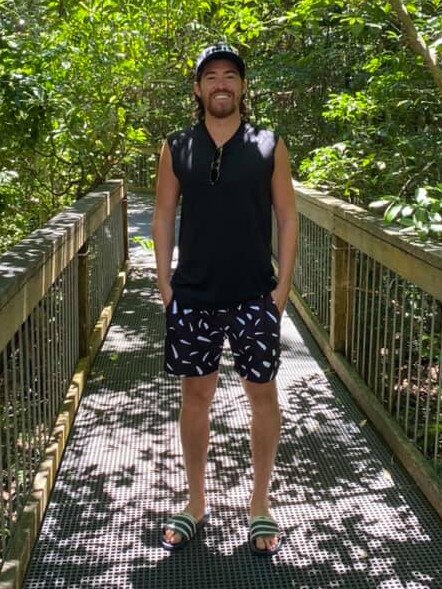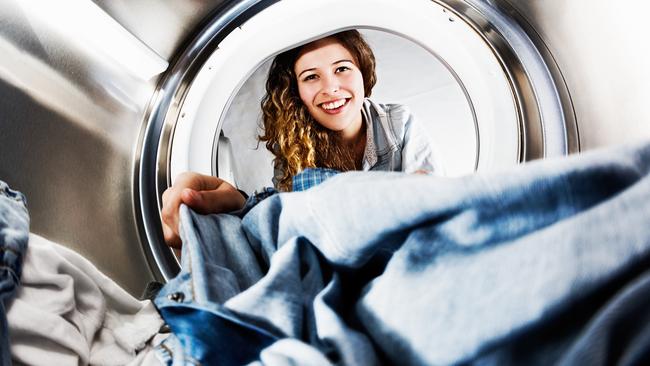How Aussies can save $400 with energy-saving hacks
Billions of dollars are wasted every year due to poor energy habits. See the simple tips Aussies can use to save them hundreds of dollars.
National
Don't miss out on the headlines from National. Followed categories will be added to My News.
With the cost of living biting hard, young Australians are turning to power-saving hacks to cut costs and save money.
Sydneysider Jethro, surname withheld, bought his first property with his girlfriend last year. He has managed to save $100 per quarter – $400 a year – by incorporating a few simple energy-saving hacks into his lifestyle.
“I steam my clothes while having a shower, instead of using an iron,” he said. “It’s just one of those life hacks that you come across. Needs must!
“And when I am at home, I charge everything during the day because it is off-peak. Morning and evening are your peak hours, so I try and charge everything – phones, toothbrushes, vacuum – during the day.”

Other energy saving tricks the Sydneysider does is turn off everything at the powerpoint as soon as he’s done using it and fire up his BBQ instead of the oven to cook meals.
“Food tastes so much better on the barbie anyway,” he said with a laugh.
And while he likes working from home like so many Aussie, there are positives to going into the office.
“You save money on energy going into the office,” the 32-year-old said.
“And I cycle into work, so I get to shower at work too.”
He also takes turns watching sports with friends because collectively only one television set is being used.
“Me and the boys, we’ve been watching the FIFA Women’s World Cup and the rugby league games on the weekend,” he said.
“Instead of everyone watching it separately, we kind of do a roulette and go to each other’s houses.”
New research from ING Australia reveals Aussies are wasting an estimated $15.1bn across the nation every year due to poor energy habits.
One of these poor habits is using the dryer to dry clothes on a sunny day, costing an estimated of $231.37 per person, or $4.6 billion nationally, every year.
Another is washing up under hot running water rather than filling the sink, costing an estimated $145.41 per person, or $2.9 billion nationally, each year.
Even boiling more water than needed costs an average of $127.87 per person, or $2.2bn nationally, each year.

“It’s clear from the research that poor energy habits can really add up,” Matt Bowen, Head of Daily Banking at ING Australia, said.
“Simply drying your clothes in the sun and not using a dryer, for a year, could save an individual approximately $230, the cost of a standard streaming subscription.”
Buying a home together has made saving money even more important for Jethro and his partner. And even though interest rates may have been put on hold today, the numerous rate rises in recent months has taken its toll.
“The cost of living crisis has affected everyone in different ways. Obviously, interest rates going up has affected me greatly,” Jethro said.
“So it’s important to have not just energy saving tricks but money saving hacks as well, like putting money into my ING interest maximum saver account and getting interest off the savings.
“Little things like that have helped.”
Joel Gibson, of One Big Switch, said moving to a cheaper electricity plan could save Aussies $1000.
“Since July 1, I’ve seen plans that are 10 per cent less than government reference prices and others that are 24 per cent more that government prices, so the cost of not switching could be over $1000 for some households in the coming year if they stay on a dud plan,” he said.
“There’s no such thing as good and bad power companies – just good and bad plans. Most retailers have a few plans, ranging from cheap to expensive.
“Their best deal might have been the cheapest on the market in June but since the price changes it might now be the 10th-cheapest.”
He encouraged Aussies to check out the Victorian Energy Compare or Energy Made Easy (for other states) for the cheapest deals or One Big Switch.
Aussies may also be available for rebates through energy.gov.au, where there’s up to $700 in support from state and federal government since July 1, Mr Gibson said.




